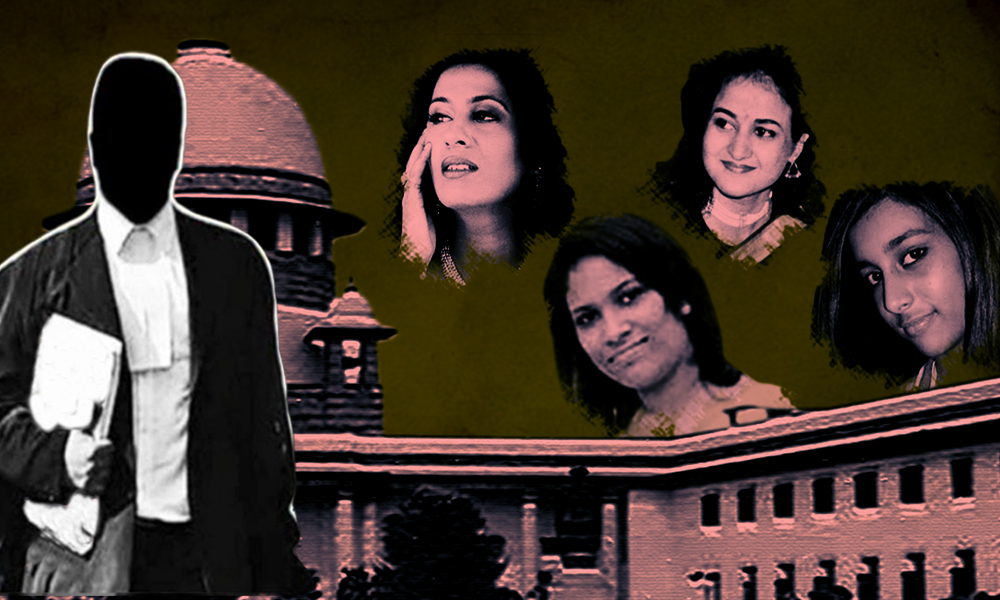
Pending Cases & Absence Of Judges: Indian Judiciary Delays Justice, Denies Equity
17 Jan 2020 9:07 AM GMT | Updated 3 March 2020 11:40 AM GMT
By : Sumanti Sen
Sumanti Sen is an English Literature graduate who believes "there's just one kind of folks. Folks.".
The Indian judiciary is infamous for the pending cases piled up in its closet, which, according to a 2018 report, are estimated to be around 30 million!
On December 16, 2019, Nirbhaya's mother, Asha Devi spoke to The Logical Indian, she was devastated and miserable. In deep despair, she said, "I am fighting every day, it's like a never-ending intermission before justice is delivered. My daughter was taken away from me, and the perpetrators deserved to be brought to justice years ago."
On January 7, a court confirmed death warrants for all the four convicts in the Nirbhaya gang-rape and murder case. Convicts Akshay, Pawan, Vinay and Mukesh were to be hanged at 7 AM on January 22, 2020.
We thought that Nirbhaya would finally rest in peace.
Days later, we were reminded of excruciating delays in India's judiciary and the justice system. The date of hanging has been changed multiple times since then and the justice appears to elude Nirbhaya's parents.
Justice Delayed Is Justice Denied
The Indian judiciary is infamous for the pending cases piled up in its closet, which, according to a 2018 report, are estimated to be around 30 million. The ratio of judges per citizen is severely low - 17 judges per 1 million citizens.
Seventy-four years since independence, the country's judiciary is still awaiting major reis going through a massive crisis. Thousands of people dependent on the legal system have to bear the brunt of delayed decisions and denied justice.
The time that the judicial system takes to dispose of a case often results in the violation of a person's fundamental right to fair justice and speedy trial.
Some other cases include the Uphaar Cinema fire case, Bhopal gas tragedy case and 1984 anti-Sikh riots case.
To help any society continue its pursuit of peace and progress, it is imperative that the judiciary performs its duties properly and sincerely.
The rule of law is non-existent without an effective judiciary. Fruitful functioning of the judiciary restores public confidence in the administration of justice, and for that, two essential requirements are timeliness and disposal of cases.
What Are Lawyers Saying?
To understand what causes a delay in delivering justice in India, keeping in mind the Nirbhaya case, The Logical Indian spoke to Majeed Menon, a senior advocate, a member of the Rajya Sabha and a member of the Parliamentary Standing Committee Of Law And Justice.
Menon pointed out that one of the main reasons behind the delay in delivering justice is the lack of an adequate number of judges.
"Inadequate number of judges ends up overburdening the legal system in our country. I have seen cases piling up year after year, gathering dust, with no judges present to deliver justice on time. I have always believed and asserted that delaying a case for an indefinite time is great injustice to the victims of a crime. Being a part of the system, I have always maintained that we must abide by our laws, but the system needs to speed up," Menon says.
Menon further emphasizes an urgent need to expand the number of fast track courts and extend these to the district level. He says that several cases can be resolved quickly only if the cases are addressed within a short period.
"Another very important need is the removal of archaic laws and mending the loopholes in existing laws," Menon explains. "A number of laws, laid out decades ago, have lost their relevance today and continue to be a reason for misuse. We urgently need to plug loopholes in a number of existing laws so that they are not misused."
Talking about the investigating agencies, Menon says, "Investigating agencies like the police need superior training on how the judiciary and the legal system work. Shoddy and unfair investigation by police result in victims suffering for a prolonged time."
Apart from these issues, people's lack of awareness about their fundamental rights, and unequal access to legal services also contribute to the corruption that ultimately denies justice to victims and survivors.
The Logical Indian also spoke to Supreme Court advocate K V Dhananjay, whose take on the delay in judicial system echoes that of Menon's. "It is time for the Supreme Court to buck up," he says.
"There are over 300 cases pending where perpetrators are supposed to be hanged, but time has made people forget them. Although very different from the Nirbhaya case, we must remember how Aarushi Talwar and Hemraj Banjade, the family's male live-in domestic worker, were found murdered in their house," he says.
The court held Aarushi's parents guilty of the murders, despite lack of evidence, witness statements, and even narco analysis. There have been no developments in the case since 2008.
"Nirbhaya is a different kind of case altogether. The law allows the convicts to file a number of petitions and gives them such a long time to exhaust their legal remedies that they are easily misusing the law. It is the failure of the system that allows them to play around with their legal remedies," Dhananjay says.
"In case of executing a death penalty, however, I believe that inadequate number of judges is not a reason for the delay. It is just the existing laws in the system," he adds.
However, contradicting all these points, advocate Deepika Singh Rajawat, known for handing the Kathua rape-and-murder case, says that the world must stop focusing on the problems alone and also look at the brighter side.
"Have you noticed how firmly the judiciary has stood by Nirbhaya's parents?" she questions. "You may complain about the delay, but we should be proud of the system for rejecting all the convicts' pleas, one after the other."
"You cannot skip procedures. Law cannot be taken into one's own hands and neither is it practical to suddenly come up with new laws. We must respect the system and have faith in it," she adds
Nirbhaya is not the only one awaiting justice for years.
There is Pallavi Purkayastha, a 25-year-old advocate who was brutally murdered by the security guard of her building in 2012. Instead of abiding by the Supreme Court's guidelines on "rarest of rare cases" to award capital punishment to the perpetrator, Sajjad Mogul was sentenced to life imprisonment by the Sessions Court. After Mogul jumped his parole granted to him in February 2016, the police authorities are still unaware of his whereabouts.
Law student Priyadarshini Mattoo was brutally raped and murdered over a decade ago. Santosh Singh, the son of a high-ranking police officer, was later acquitted by a trial court for lack of evidence.
We have all heard about the Jessica Lal murder case. A celebrity barmaid Jessica Lal was shot dead at a crowded party by Manu Sharma, son a wealthy and influential former Congressman from Haryana, Venod Sharma. She was murdered for refusing to serve alcohol to Sharma as the bar ceased its sales at 12:30 AM. Manu and some others were acquitted on February 21, 2006, during the ensuing trial. It was only years later in December 2007 that Sharma was finally sentenced to life imprisonment.
It is obvious that the number of litigations will increase with a population that continues to grow. The pace of development is also ever-increasing. In such a situation, there is a dire need for the judicial system to respond to crimes rapidly and ensure timely justice to all.
Also Read: From Hyderabad Vet To Unnao Rape Cases, Questions On Women's Safety Remained Unanswered In 2019
 All section
All section














